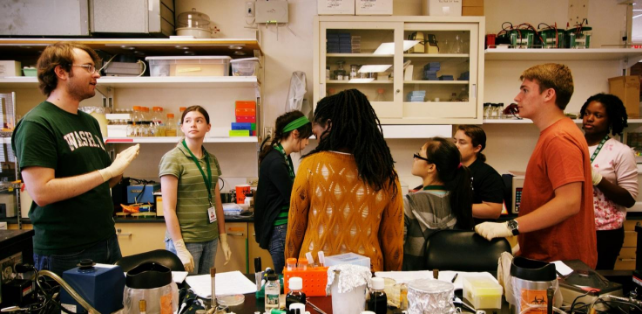
Guest post by Nicole Boyer
Volunteering is more than spending one’s time actively participating in selfless acts or activities that benefit other people. It has a greater impact on society as a whole. Volunteers are of great help to the community as they immerse themselves in a pool of opportunities. These opportunities are one reason why we need to encourage more students to volunteer.
By volunteering, students develop life skills and become well-rounded individuals.
Starting young provides an opportunity for students to learn and grow into valuable members of society. They develop life skills as they get immersed in activities that are outside of their comfort zones. They become socially aware and learn to appreciate their life and value what they have.
Volunteering helps students become competent, employable, and better meet their learning objectives.
Volunteering serves as a training ground for honing students’ skills, giving them an edge over those who do not have any volunteer experience. Encourage them to join volunteer programs during school breaks or over the summer.
Employers seek volunteer experience from fresh graduates.
Employers prefer hiring fresh graduates with volunteer experience because it shows commitment and a sense of responsibility. Volunteers are reliable, selfless, responsible, and willing to do more than what is asked—even without monetary compensation. These are qualities that employers look for when hiring fresh graduates.
We’ve outlined a few of the benefits of volunteering. But how do we motivate students to devote more time to volunteer work?
1. Define the purpose.
Defining the real purpose of why they should volunteer is a great way to motivate students. They must understand the real impact of volunteering. Explain the weight of what they’re about to do and how they can make a difference in the world. Give them a purpose and let them take it from there.
2. Allow them to be independent.
Grant them the full autonomy for their choices and decisions. Encouraging independence can help students feel like they are trusted, and by human nature, the more trust being placed to a person, the more responsible they become.
3. Empathize with them.
Most of the time, adults forget to empathize with youth. When one doesn’t feel understood, they will never try to understand. If they are not up to volunteering, don't be discouraged. Try to understand where they are coming from and maybe, both parties will agree to compromise. Sometimes, empathy is all it takes to motivate
4. Lead them by example.
Always walk your talk. Kids, especially teenagers, may not be the best at listening to parents or elders. Yet, they may begin to imitate the actions of adults. If they see adults put their passion into good use, they may be inspired to do the same.
5. Provide fun learning activities.
Some students think that volunteer work is boring, tiring, and requires too much time and physical strength. Fun is one of the best motivators. Add fun to your volunteer opportunity by incorporating games and competitions.
6. Provide positive feedback and recognize their efforts.
Feeling unappreciated is the best way to kill motivation, especially when you are doing something that is actually making a difference. When you tell people you appreciate what they do, they tend to do more of it. Recognize their efforts and they will work harder.
Universities and educational institutions can show their appreciation of student volunteers’ efforts by giving them extra credit.
Author Bio: Nicole Boyer is a web designer and contributing blogger for several websites. She is dedicated to making this world a better place. Nicole believes that by helping each other we can go much further.




